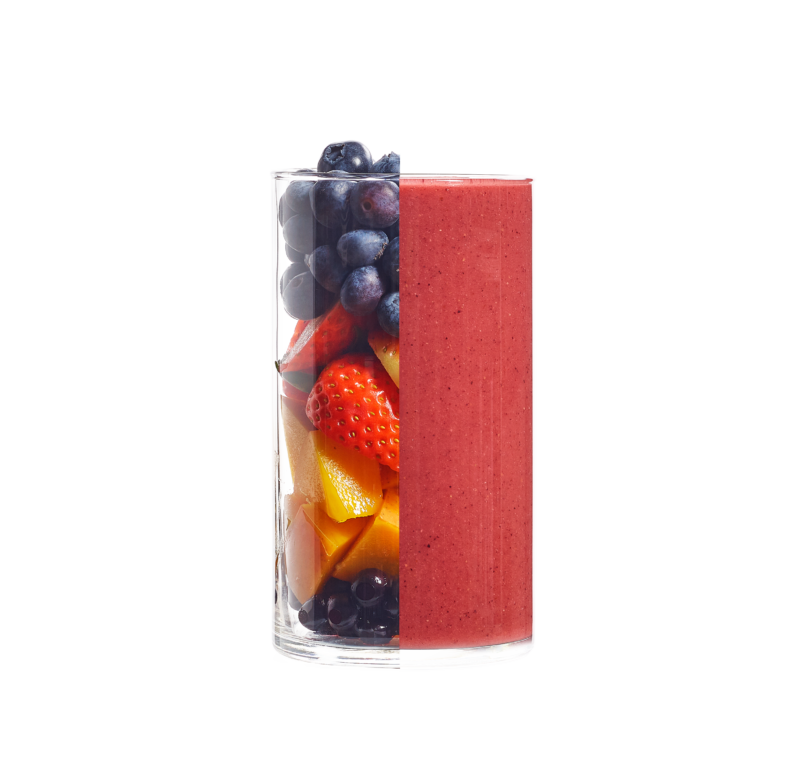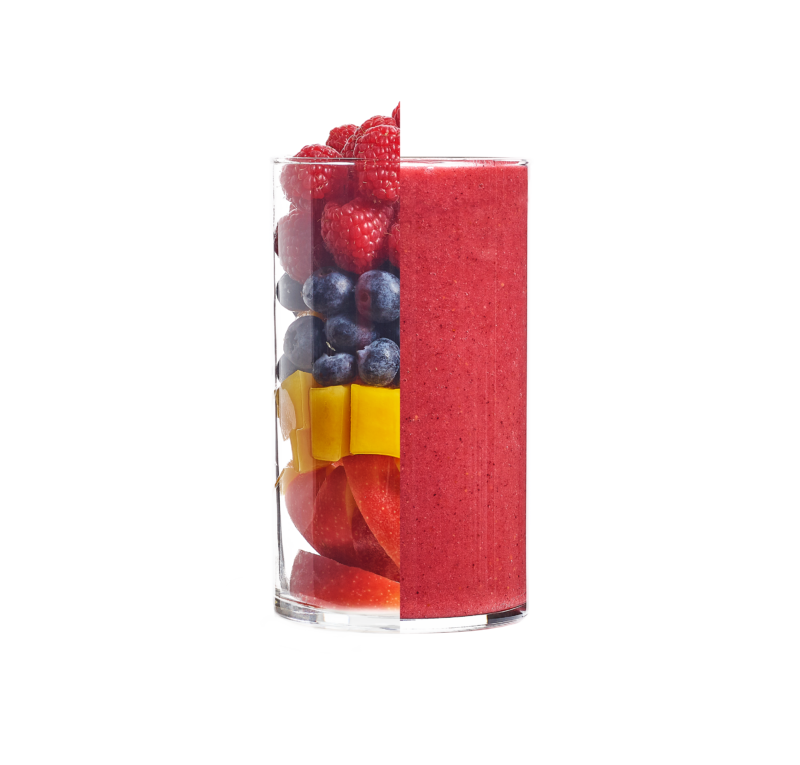
Smoothies: a Study on Liquid Bases
Freshly blended smoothies are the ultimate go-to for a quick, nutritious and refreshing breakfast, post-workout or snack. While fruit, vegetables and superfoods often steal the spotlight in smoothie recipes, the liquid base plays a crucial role for taste, texture and wellness goals. In this article, we explore what works best and what to steer clear of based on extensive testing and research by our food experts.
Recommended by our experts
- Apple juice - highly recommended
Apple juice is our all-time favourite liquid base for smoothies. It offers a sweet and refreshing flavour that complements a wide range of fruit and vegetables, providing a balanced sweetness without overpowering other ingredients. - Orange juice - highly recommended
Orange juice is an excellent alternative to apple juice. This liquid adds a tangy kick to your smoothies. While suitable for most smoothies, it can sometimes dominate the flavours, so consider using a 50% water and 50% orange juice blend. - Water - recommended
A versatile and calorie-free option, water serves as a neutral bases for a variety of smoothies. Ideal for tangy and tropical smoothies, or those with complex flavour profiles. We recommend adding 125ml water instead of 250ml, ensuring that it complements rather than dilutes the flavours. - Coconut milk - recommended
Coconut milk is perfect for imparting a creamy texture and tropical flavour to your smoothies. It works best with sweet or tropical taste profiles, enhancing the richness of fruits and vegetables, and is particularly suited for smoothies featuring coconut, pineapple, mango and passion fruit. - Oat milk - recommended
A milder alternative to traditional dairy or nut milks, oat milk adds creaminess without overwhelming the flavour. Best suited for smoother combinations.
Not recommended by our experts
- Almond milk
Despite its popularity, almond milk tends to be too sweet and may not complement the majority of fruit combinations. The flavour profile can overpower delicate fruit flavours, resulting in an imbalanced smoothie. - Lemon water
While lemon adds a refreshing touch to beverages, using lemon water as a smoothie base can lead to an overpowering acid taste. Smoothies should strike a balance of flavours, and lemon water can easily overshadow other ingredients. - Coconut water
Despite its hydrating properties, coconut water may not pair well with most fruits, resulting in a clashing flavour. - Dairy milk
While some may opt for dairy milk as a traditional base, its strong flavour and heavy texture often do not complement fruit-based smoothies. Dairy milk can impart a sour or unpleasant taste, detracting from the natural sweetness of fruit.
Conclusion
Choosing the right liquid base for your smoothie can take it from good to exceptional. The key is to experiment and discover what aligns with your professional palate. Happy blending!







